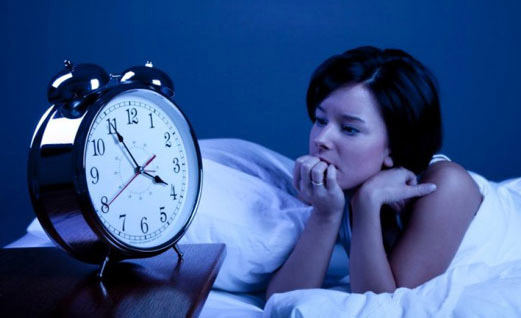Anyone who has ever felt tired in the morning or dozed off in a meeting knows that sleep is important. In fact, getting enough is vital to your well-being. Here’s why you need more shut-eye, along with tips to help you get it!
Symptoms of sleep deprivation include:
- Difficulty falling asleep
- Waking often during the night
- Waking too early and being unable to go back to sleep
- Waking up tired, exhausted and not feeling refreshed
- Daytime fatigue or exhaustion
- Weight Gain
- Brain Fog
- Difficulty focusing or concentrating
- Anxiety, depression, mood swings
How Much Sleep do You Need?
The amount of sleep each person needs depends on many factors, including age. Infants generally require about 16 hours a day, while teenagers need about 9 hours. For most adults, 7 to 8 hours a night appears to be the best amount of sleep, although some may need as few as 5 or as many as 10.
Women in the first three months of pregnancy often need several more hours of sleep than usual. The amount of sleep a person needs also increases if they have been deprived of sleep in previous days.
Getting too little sleep creates a sleep debt, which is much like being overdrawn at a bank. Eventually, your body will demand that the debt be repaid.
People tend to sleep more lightly and for shorter time spans as they get older, although they generally need about the same amount of sleep as they needed in early adulthood.
About half of all people over 65 have frequent sleeping problems, such as insomnia, and deep-sleep stages in many elderly people often become very short or stop almost completely.
This change may be a normal part of aging, or it may result from medical problems that are common in elderly people and from the medications and other treatments for those problems.
The Importance of Sleeping Enough
We don’t seem to adapt to getting less sleep than we need. While we may get used to a sleep-depriving schedule, our judgment, reaction time and other functions are still impaired.
Yet the widespread practice of burning the candle at both ends has created so much sleep deprivation that what is really abnormal sleepiness is now, erroneously, almost accepted as the norm. Experts say that if you feel drowsy during the day, even during boring activities, you haven’t had enough sleep. If you routinely fall asleep within five minutes of lying down, you probably have severe sleep deprivation, possibly even a sleep disorder such as sleep apnea.
Many studies make it clear that sleep deprivation is dangerous. Driver fatigue is responsible for an estimated 100,000 motor vehicle accidents and 1,500 deaths each year, according to the National Highway Traffic Safety Administration. Since drowsiness is the brain’s last step before falling asleep, driving while drowsy can—and often does— lead to disaster.
Addressing Underlying Causes
Caffeine and other stimulants can’t overcome the effects of severe sleep deprivation, and common sleep medications such as Ambien and Lunesta do not correct the underlying cause of lack of sleep, such as stress, elevated cortisol and adrenalin hormone levels at night, and neurotransmitter imbalances.
The Slippery Slope of Sleep Deprivation
Activity in the parts of the brain that control emotions, decision-making processes and social interactions is drastically reduced during deep sleep, suggesting that this type of sleep may help people maintain optimal emotional and social functioning.
Sleep appears necessary for our nervous systems to work properly. Too little leaves us drowsy and unable to concentrate the next day. It also leads to impaired memory and physical performance. If sleep deprivation continues, adrenal fatigue, anxiety, depression, weight gain and mood swings may develop.
Natural Approaches
Naturopathic ways to improve sleep include stress reduction techniques, progressive relaxation, acupuncture, and nighttime neurotransmitter and adrenal testing. Another common cause of sleep deprivation and insomnia is sleep apnea, which is evaluated in a sleep study in a medical sleep center.
Sleep hygiene is important as well. Some good sleep habits include going to bed and waking up at the same time every night, not imbibing in caffeine or alcohol in the second part of the day, and taking time to unwind and relax before going to bed. Try getting seven to eight hours of sleep a night, although the amount of sleep needed is different for everyone. Simple sleep hygiene practices include keeping your sleep space as dark as possible, and eliminating sources of negative stimuli, such as computers, cellphones, and television from the bedroom. Finally, do not watch violent imagery, news, or movies before bed as they can also increase the chance of nightmares. A good alternative is meditation, listening to progressive relaxation CDs, or listening to soothing music.
Dr. Helene Pulnik, ND, treats sleep disorders with Naturopathic Medicine. She has helped many individuals attain normal sleep patterns and better health, naturally.
